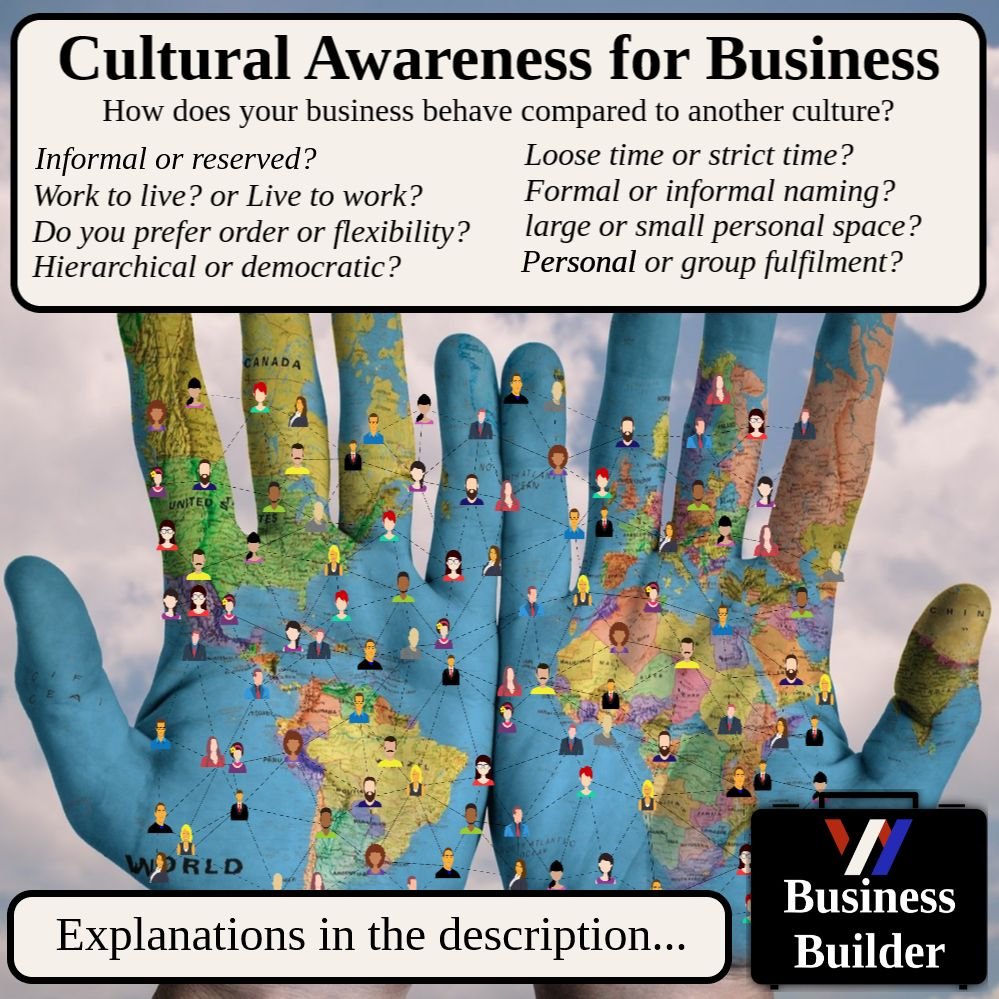Business Builder: Cultural Awareness for Business
The more we become a global society, the more we need to put cultural awareness at the front of our business strategies. Selling in another country requires significant localisation, but so does collaborating with a company from a different culture. We often find that working with another company in our own country can involve large differences in behaviour. When working with employees from another culture the differences can be dramatic.
When planning to work with another culture consider the following:
• Informal or reserved? - Open and friendly, or quiet and professional?
• Work to live? Or live to work? – Do you work to earn money, or live your life based around your job?
• Do you prefer order or flexibility? – Do you have many rules, or allow many changes?
• Hierarchical or democratic? – Is there a strict order of power, or is everyone similar in power?
• Loose time or strict time? – Are you flexible on appointment times and deadlines, or are you strict and literal?
• Formal or informal naming? – Mr Hanson, or Clive?
• Large or small personal space? – Do you expect a lot of space between you and others, or are you comfortable with close contact?
• Personal or group fulfillment? – Do you work to achieve your own goals, or the goals of the group / company?
Every individual you work with will be different, but you will find general rules for different cultures. For example, the British generally expect informal naming and democratic working positions, but also expect to have their large personal space respected.
What is the culture where you work? What about your country in general?

